World
Sanae Takaichi Faces Three Major Challenges After Winning LDP Leadership; Japanese Media Warn of a “Short-Lived Administration”
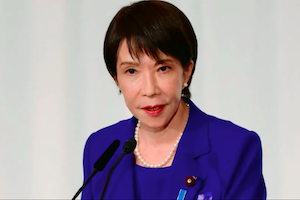
Japanese media reported on Saturday (October 4) that the Liberal Democratic Party (LDP) has elected its first female president, Sanae Takaichi, who is expected to become Japan’s first female prime minister by mid-October. While the public holds high expectations for her leadership, analysts warn that Takaichi will face numerous challenges, including restructuring party factions, building cooperation with opposition parties, and restoring public trust in the LDP.
According to Yomiuri Shimbun, Takaichi defeated the highly popular Minister of Agriculture, Forestry and Fisheries, Shinjiro Koizumi, to secure the LDP’s top post — a historic milestone in Japanese politics. However, after consecutive defeats in the House of Representatives, the Tokyo Metropolitan Assembly, and the House of Councillors elections, the party’s morale has plummeted. Reuniting the LDP through strategic personnel appointments will be Takaichi’s first major task.
Key figures under consideration for major party and cabinet positions include Shinjiro Koizumi, Finance Minister Katsunobu Kato, Aso faction’s Policy Council Chairperson Shunichi Suzuki, and former Policy Research Council Chairperson Koichi Hagiuda as potential candidates for LDP Secretary-General. Possible contenders for Policy Research Council Chairperson include former Economic Security Minister Takayuki Kobayashi and Election Strategy Committee Chairperson Seiji Kihara, a close ally of former Prime Minister Fumio Kishida. Since the LDP currently lacks a majority in both houses of the Diet, collaboration with opposition parties will be crucial. The role of Diet Affairs Committee Chairperson is expected to be pivotal, with former Deputy Finance Minister Nobuhide Mikazuki and current Secretary-General Hiroshi Moriyama among the likely candidates.
Takaichi must also confront the lingering impact of the “dark money” scandal that erupted in late 2023, which led to the dissolution of major party factions. During the leadership race, she received strong backing from the former Abe faction, but if she appoints lawmakers previously entangled in the scandal, public backlash could quickly resurface.
Although the LDP’s election of a female leader has been hailed as a breath of fresh air, real power within the party remains concentrated among veteran heavyweights — former prime ministers Taro Aso, Fumio Kishida, and Yoshihide Suga. Analysts note that Takaichi’s victory was largely secured thanks to the Aso faction’s support in the second round of voting. If she relies too heavily on these party elders and fails to pursue bold reforms, public trust in the LDP may erode further.
On foreign policy, Takaichi’s reputation as a hardline conservative could strain Japan’s relations with China and South Korea and potentially alienate the LDP’s coalition partner, Komeito. Observers caution that if she cannot strike a balance between domestic reform and diplomatic pragmatism, her administration may follow the path of previous short-lived governments.
- 7 reads
Unidentified Drones Intrude Across Europe; France Prioritizes Air Defense with Round-the-Clock Vigilance

Several European countries — including Denmark, Norway, Poland, Romania, Belgium, and Germany — have recently reported incursions by unidentified drones targeting airports and military bases. Although France has not yet experienced similar incidents, its Ministry of Defense emphasized that counter-drone operations have become a key priority of national air defense, with more than 70 radars deployed across the country and about 450 pilots on constant 24-hour alert.
France’s air defense system operates under a “permanent air defense posture,” capable of intercepting suspicious aircraft within minutes. The military handles large drones, while smaller ones fall under civilian authorities. Defense measures include radar networks, electro-optical tracking systems, electronic jamming, and fighter jet interceptions. The military is also testing laser and microwave counter-drone technologies. According to the Defense Ministry, during the 2024 Paris Olympics, France detected nearly 400 drones and neutralized over 100 potential threats, demonstrating its robust defensive capabilities.
Étienne Marcuz, a researcher at the Foundation for Strategic Research (FRS), told Le Figaro that if the drone incursions were indeed orchestrated by Russia, they could be interpreted as an intimidation tactic aimed at testing the European Union’s unity and proving that all European countries — not only those in the east — are vulnerable to attack.
At the EU summit in Denmark, President Emmanuel Macron stated that Europe has the right to destroy drones violating its airspace. He also announced plans to convene a meeting of European chiefs of staff to discuss countermeasures against Russia’s so-called “ghost fleet.” Recently, the French Navy intercepted an oil tanker off the country’s western coast suspected of helping Russia evade sanctions. Danish media speculated that the same vessel might have served as the platform for drones that disrupted Danish airspace in late September.
- Read more
- 12 reads
Trump Announces U.S. is at War with Drug Cartels
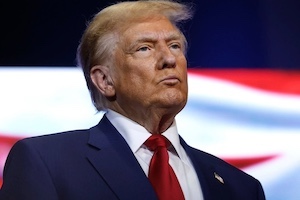
Multiple U.S. media outlets reported that on the 2nd, President Donald John Trump submitted a classified report to Congress, stating that the United States is currently at war with drug cartels designated as terrorist organizations. According to the report, the situation has reached a critical point, and the U.S. must resort to military force in self-defense. Venezuelan Defense Minister Vladimir Padrino López responded by saying that five U.S. fighter jets were detected near the Venezuelan coast, calling it an act of illegal intrusion and provocation that seriously endangers aviation safety in the Caribbean region.
The classified report, delivered to congressional committees by the Pentagon, aims to justify the legality of attacking drug cartels. It includes details of Trump’s September order to carry out operations in the Caribbean against illegal vessels. However, the report does not specify the names of the cartels involved in armed conflict with the U.S., nor the dates or regions affected. It does state that those killed in the operations were classified as unlawful combatants, drawing significant public concern.
In September, U.S. drones were used to sink at least three suspected smuggling vessels off the coast of Venezuela, resulting in at least 17 deaths. This has sparked widespread criticism regarding the legality of using military force against drug trafficking suspects, with accusations that Trump is abusing presidential power. Both Democratic and Republican senators and representatives have voiced strong opposition, urging that the administration act in accordance with the War Powers Act and refrain from using military force without congressional authorization.
Venezuelan Defense Minister López issued a strong statement condemning the U.S., saying that on the day of the conflict, at least five U.S. military aircraft were detected in the Maiquetía Flight Information Region. Although some of the aircraft did not enter Venezuelan airspace, their presence posed a serious threat to Venezuela’s national sovereignty, violated international law, and breached the International Civil Aviation Convention. He added that Venezuela would appeal to the United Nations, the International Civil Aviation Organization, and Latin American and Caribbean nations to take necessary measures to prevent such actions from happening again.
- Read more
- 29 reads
U.S. Federal Funding Bill Stalemate Shuts Down Government Again; Trump Seizes Opportunity to Undermine Democrat-Led States
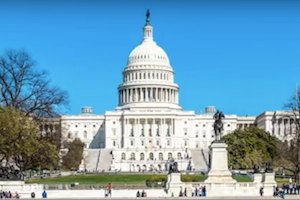
The U.S. federal government has once again shut down after lawmakers from both parties vetoed each other’s proposals to extend federal funding. With Congress in recess for Yom Kippur, the earliest possible time to reschedule a vote is October 3. As a result, government departments are once again left in limbo, and reports indicate the White House may initiate a new round of federal employee layoffs within the next couple of days.
President Donald Trump stated on September 30 that he intended to use a government shutdown to target Democratic priorities and institutions. Russell Vought, Director of the Office of Management and Budget (OMB), said the administration aims to halt funding for infrastructure projects in Democrat-led states, announcing the cancellation of $8 billion in green energy programs and warning that funding for the Women, Infants, and Children (WIC) nutrition assistance program will be cut.
Federal funding for two major New York infrastructure projects—the Second Avenue Subway and the Hudson Tunnel to New Jersey—amounting to roughly $18 billion, has also been frozen. Decisions on which services will continue to operate will be based on safety considerations and remaining budget resources, as determined by the President and the OMB.
During Trump’s first term in 2018, the government experienced its longest-ever shutdown, lasting 35 days. The impasse ended only after Trump compromised on funding for the U.S.–Mexico border wall. Historically, all federal shutdowns have resulted from bipartisan negotiation failures, with federal employees being the most directly affected. Around 420,000 workers are forced to work without pay, while 380,000 are furloughed. Although back pay is often issued afterward, the shutdowns still cause widespread disruption to people’s lives.
- 29 reads
Mid-Autumn Festival Approaching: Major Strike at 15 Airports Across South Korea
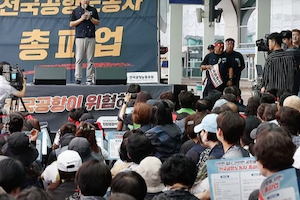
Travelers heading to South Korea should take note: starting October 1, a large-scale, indefinite strike has begun at 15 airports across the country. The strike may continue through the Mid-Autumn Festival holiday. The labor union behind the strike includes 15,000 workers responsible for runway and terminal maintenance, and the action is expected to disrupt airport operations.
The nationwide airport workers’ union in South Korea launched the strike to demand improved scheduling systems and an end to unequal treatment of subcontracted employees. Workers at all 15 airports — including Incheon and Gimpo — began a full-scale, indefinite strike at 6 a.m. on October 1 and will continue until their demands are met.
Incheon International Airport Corporation and Korea Airports Corporation stated that they will work with subsidiaries and partner organizations to minimize inconvenience to passengers. Incheon Airport Corporation also urged workers to suspend the strike, emphasizing that preparations are underway for the upcoming APEC summit in just a month, and that ensuring national safety and public convenience should be the top priority during this critical time.
- 58 reads
Nuclear Talks Collapse; UN Reimposes Economic Sanctions on Iran
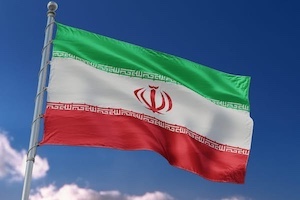
Reuters reports that the United Nations (UN) reimposed sanctions on Iran on the 27th after last-ditch negotiations between Iran and the UK, France, and Germany failed to resolve the deadlock over Tehran’s nuclear program.
After months of stalled talks, negotiations between Iran and major world powers have officially collapsed. The UN Security Council held an emergency meeting in New York and unanimously passed a resolution to reimpose partial economic sanctions on Iran effective immediately, in response to Tehran’s continued expansion of its nuclear program. The move has heightened global concerns over Middle East stability and caused renewed turbulence in energy markets.
According to the Security Council's statement, Iran has gradually exceeded the uranium enrichment purity and storage limits set by the 2015 Joint Comprehensive Plan of Action (JCPOA) over the past year and has refused full inspection requests from the International Atomic Energy Agency (IAEA). Despite multiple mediation efforts by the EU, including phased de-escalation proposals, Tehran has insisted its nuclear program is for “peaceful purposes” and refused to make further concessions. One negotiator stated, “We will not accept any conditions that compromise Iran’s sovereignty.”
The resolution was backed by the five permanent members of the Security Council and a majority of non-permanent members. Sanctions include restrictions on Iran’s oil exports, the freezing of certain overseas financial assets, and bans on the import of military and high-tech equipment. The U.S. State Department stated afterward that Washington remains open to diplomacy if Iran returns to the negotiating table, but warned that if Tehran continues to advance its nuclear program, additional unilateral sanctions could follow.
In response, Iran’s Foreign Ministry issued a statement condemning the Security Council’s decision as “unfair and politically motivated,” stressing that Iran will not abandon nuclear development due to external pressure. The statement added that Iran is prepared to face economic blockades and will strengthen trade and economic cooperation with friendly nations such as Russia and China to counter Western sanctions.
International analysts believe the collapse of the talks will further escalate tensions in the Middle East. As one of the world’s key oil exporters, Iran’s sanctions could lead to reduced crude supply, and global oil prices surged immediately after the resolution was announced. Several European countries expressed concern, warning that uncertainty in energy markets could intensify inflationary pressures and hamper global economic recovery.
Meanwhile, neighboring Israel voiced support for the reimposed sanctions and again warned that if Iran continues to develop high-purity enriched uranium, it may be forced to take “necessary actions.” Many fear that if the situation spirals out of control, it could trigger a regional military conflict.
Although the UN resolution has been finalized, diplomatic experts emphasize that there is still room for maneuver. If Iran is willing to return to the negotiating table and demonstrate transparency in its nuclear program, the international community may still find a path to avoid full-scale confrontation. However, in the short term, mutual trust between Iran and the West has nearly collapsed, and the future trajectory of the situation remains a key concern for the global community.
- Read more
- 19 reads
Trump Urgently Convenes Congressional Leaders to Avert Government Shutdown Crisis
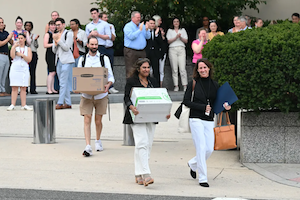
U.S. President Donald Trump on September 30 urgently convened the four top congressional leaders from both parties in a last-ditch effort to resolve the looming government shutdown set to begin on October 1. With Congress yet to approve discretionary spending for the new fiscal year, the federal government is on the verge of its 15th partial shutdown since 1981. Vice President J.D. Vance said afterward that the administration was prepared for a shutdown, blaming Democrats for blocking a deal; Senate Democratic leader Chuck Schumer countered that wide divisions remain and talks have seen no breakthrough.
If Congress fails to act in time, thousands of federal employees could face unpaid furloughs, and services at NASA, national parks, federal courts, and small business grant programs may be disrupted. However, Social Security payments to seniors, Medicare and Medicaid services, federal student loans, and Pell Grants for low-income students would continue. The White House has already ordered agencies to prepare for staff cuts, framing the shutdown as an opportunity to reduce waste and abuse — though it could have significant repercussions for the labor market. Democratic Senator Chris Van Hollen criticized Republicans for giving Trump a “blank check” and politicizing funding.
Republicans are pushing for a “clean” short-term spending bill to extend government operations for seven weeks at current funding levels, while Democrats are demanding the inclusion of provisions such as extended health care subsidies. Despite Republican majorities in both chambers, the Senate requires at least 60 votes to advance any bill, meaning some Democratic support is necessary. If even the stopgap continuing resolution (CR) fails to pass, the government could begin shutting down as early as the morning of October 1.
- 23 reads
UN Reimposes Sanctions on Iran for First Time in a Decade After Nuclear Talks Collapse
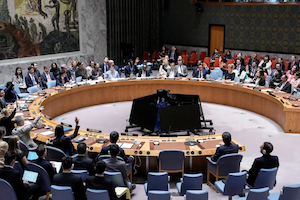
After the collapse of the final round of nuclear talks between Iran and Western nations, the United Nations Security Council formally reinstated its arms embargo and multiple sanctions on Iran at 8 p.m. Eastern Time on the 27th (8 a.m. on the 28th in Taiwan). This marks the first time in a decade such measures have been reimposed.
In 2015, Iran signed the Joint Comprehensive Plan of Action (JCPOA) with the United Kingdom, Germany, France, the United States, Russia, and China, agreeing to restrict its nuclear program in exchange for international sanctions relief. However, the UK, France, and Germany have now accused Tehran of violating the agreement and triggered the Security Council’s “snapback” sanctions mechanism.
As a result, resolutions passed by the Council between 2006 and 2010 imposing sanctions are once again in effect. Several countries had tried, on the sidelines of this week’s UN General Assembly, to delay the sanctions reinstatement but ultimately failed. Following the vote, the foreign ministers of the UK, France, and Germany issued a joint statement urging Iran and all nations to fully comply with the Security Council’s resolutions.
With the effective termination of the nuclear deal, tensions in the Middle East are expected to escalate further. The United States and Israel recently carried out airstrikes on Iranian nuclear facilities, heightening hostilities. Tehran has denied pursuing nuclear weapons and warned it would respond firmly. Still, Iranian President Masoud Pezeshkian stated that Iran has no intention of withdrawing from the Nuclear Non-Proliferation Treaty (NPT) and announced the recall of its ambassadors to the UK, France, and Germany for consultations.
The UN Security Council’s official website has already updated its records to reflect the reinstated sanctions. Western diplomats emphasized that diplomatic channels remain open. U.S. Secretary of State Marco Rubio urged Tehran to show goodwill by accepting direct talks and called on member states to “immediately enforce the sanctions” to pressure Iran’s leadership into making decisions that would benefit both national and global security.
- 18 reads
South Korea’s National Data Center Fire Disrupts Hundreds of Government Online Services; Prime Minister Apologizes
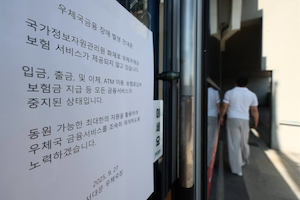
A fire broke out last night at the National Information Resources Service (NIRS) in Daejeon, South Korea, triggered by a lithium battery, causing a nationwide shutdown of multiple government online systems, including postal services and emergency response platforms. The incident drew widespread public concern, prompting Prime Minister Kim Min-seok to issue a public apology on the 27th.
According to AFP, the center, located about 150 kilometers south of Seoul, is a key national information facility that hosts hundreds of critical systems. Local authorities stated that while the blaze was largely brought under control earlier, cooling and humidity control equipment essential for the servers had been damaged, leading the government to shut down most systems to prevent further harm.
South Koreans received several official text alerts early this morning, notifying them that some postal online services were suspended, and that the 119 emergency hotline could only be reached by phone, with video and text reporting functions temporarily disabled.
In his statement, Kim said: “Because critical systems are concentrated in a single facility, firefighting and recovery efforts are extremely challenging. Processing of certain civil affairs and the issuance of official documents may be delayed, causing inconvenience to the public. I extend my deepest apologies to the people.”
The Ministry of the Interior reported that, as of the morning of the 27th, 647 government online services were offline, affecting mobile identity verification, the National Law Information Center, and the official platform for filing petitions.
The accident has drawn comparisons to the 2022 KakaoTalk outage, when a fire at a data center crippled South Korea’s largest messaging app, disrupting service for more than 50 million users. That incident forced both the company and the government to pledge stronger preventive measures. With yet another fire now striking a national-level data center, public concerns over cybersecurity and infrastructure safety are likely to deepen.
- 117 reads
Trump Signs Executive Order Approving $14 Billion TikTok Deal
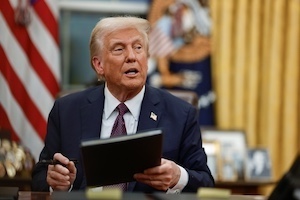
U.S. President Donald Trump signed an executive order at the White House on the 25th, officially approving the sale of TikTok’s U.S. operations, bringing months of negotiations with China to an end. U.S. Vice President JD Vance stated that the deal is valued at $14 billion.
Under this deal, TikTok’s Chinese parent company ByteDance will sell its U.S. operations. A new company will be formed to take over the U.S. business, led and majority-owned by American investors. The new entity is expected to be valued at around $14 billion. ByteDance's ownership will be reduced to below 20% to ensure TikTok can continue operating in the U.S. while complying with national security regulations.
According to media reports, U.S. software giant Oracle, private equity firm Silver Lake, and UAE-based investment company MGX will be the primary investors in the new company, collectively holding a 45% stake in TikTok’s U.S. business. TikTok’s Chinese parent ByteDance will hold a 19.9% stake, while the remaining 35% will be owned by ByteDance’s existing investors.
During the signing, Trump stated that the agreement benefits both the U.S. and China, and thanked China for its support in completing the deal. However, some members of the U.S. Congress have raised concerns over whether the deal meets national security requirements, calling for the government to release the agreement’s details and submit it for congressional review. As of now, the Chinese government has not made an official statement, and the Chinese Embassy in the U.S. has yet to respond to requests for comment.
- Read more
- 16 reads
Human Rights
Fostering a More Humane World: The 28th Eurasian Economic Summi

Conscience, Hope, and Action: Keys to Global Peace and Sustainability

Ringing FOWPAL’s Peace Bell for the World:Nobel Peace Prize Laureates’ Visions and Actions

Protecting the World’s Cultural Diversity for a Sustainable Future

Puppet Show I International Friendship Day 2020

